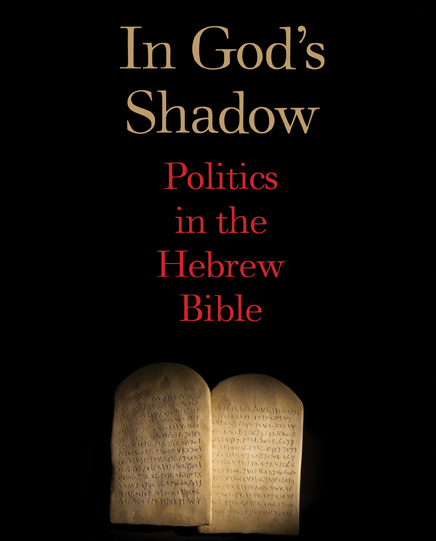A Tale of Three: Political Culture and Codes in the Hebrew Bible
The Hebrew Bible, the twenty-four books that make up the Old Testament of the Christian Bible, tell the stories of the creation of the earth and the founding of the Jewish religion. In God’s Shadow: Politics in the Hebrew Bible, Michael Walzer engages in a decade-long process of researching how politics is portrayed in and influences the Hebrew Bible. Using biblical text taken from  multiple translations Walzer is able to construct a narrative that is both cohesive and cognizant of the difficulties of such a project. The Hebrew Bible is a complex document that is part family history, part government document, and part religious guideline. Balancing these elements Walzer explores ancient thoughts on justice, prophets, and the rule of kings.
multiple translations Walzer is able to construct a narrative that is both cohesive and cognizant of the difficulties of such a project. The Hebrew Bible is a complex document that is part family history, part government document, and part religious guideline. Balancing these elements Walzer explores ancient thoughts on justice, prophets, and the rule of kings.
One of the most complex parts of the Hebrew Bible is the overlapping legal codes which the Israelites are given. The first of these codes, given in Exodus, contains one of the most well-known codes, The Ten Commandments; the second, given in Leviticus, concerns the priests; and the third code, given in Deuteronomy, concerns civil and criminal law, and laws for religious observances. As Walzer notes, “[t]hese three codes are significantly different in the range of social activities they cover… [y]et all of them are divinely commanded by the same God.” The collaborative nature of these codes is one of many things that differentiate the culture of the Israelites from others of the period where new codes often replaced older ones. The three codes seem to be both evolutions that build on one another, but also have their separate spears of influence. As the earliest code, Exodus is concerned primarily with the code of the tribes and early ruling structure; Leviticus was most likely written by priests and while it covers much of what is written in Exodus also governs sacrifices and purity; lastly, Deuteronomy is the law of the nation which covers the now-established ruling system and the courts. The uniqueness of an overlapping structure is echoed by the content that distinguishes the Hebrew Bible from other codes of its time.
The laws of the Hebrew Bible are unique not only in their structure, but in their content, as well. The laws differ from many of those found in other Near East cultures that gave more power to kings and rulers in terms of punishment. The Bible is the only ancient code from the Near East that requires capital punishment as a punishment for murder, whereas other codes require monetary compensation. Whether one feels that this is more just is a matter of opinion, but the Israelites believed these laws were infallible as they were God’s alone. Another unique feature of Hebrew law is its interdependence on the historical text in which it is embedded. The Ten Commandments and the laws given to Moses in the Book of Exodus would not exist had the Israelites not been fleeing Babylon. This interplay ensures that anytime the history is recounted the laws are re-told and anytime the laws are consulted the history of the Israelites is remembered, as well. The third feature that sets Hebrew law apart is the use of justifiable law, which is law that contains reasons for punishments.
The distinctive features of Hebrew law have created code that has withstood the test of generations. It created a culture in which many people were involved in the arguments about law because it is an integral part of every person’s history and because kings were not given the power to punish without reason. The three codes also allowed the Hebrew Bible to withstand criticism because they were all attributed to God, and therefore correct, despite any inaccuracies. That is not to say that there were not challenges in the political culture, but it is faith in God and the knowledge of free will ascribed by God that has allowed the codes to exist for centuries.




